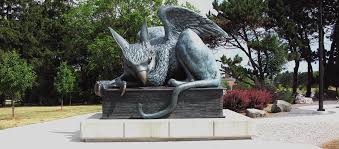Your Graduate Studies Team

There are many people and administrative units that provide support and resources to help you successfully complete your graduate program. Those you will regularly interact with during your tenure as a graduate student are described below.
The Office of Graduate and Postdoctoral Studies (OGPS), which is located on the 3rd floor of the University Centre, is the administrative centre for most aspects of graduate students’ academic life. The OGPS partners with the Office of Registrarial Services and other academic and administrative units to maintain academic standards and the integrity of graduate programs. The staff in the OGPS provide services that are briefly described below. You can consult the directory if you would like to contact an OGPS staff member.
The OGPS website is an excellent source of information on the academic aspects of your program.
You are encouraged to visit the New Students webpage where you will find important information about topics such as:
- registration,
- payment of fees,
- funding and financial aid,
- ID cards,
- the Academic Integrity course
The Director, Office of Graduate and Postdoctoral Studies (OGPS) reports to the Assistant Vice-President, Graduate Studies. The Director is responsible for providing leadership in the operation and administration of the OGPS in coordination with the Office of Registrarial Services and other academic and administrative units. They coordinate support with universities sharing joint graduate programs, and provides support for University developing academic policy and administrative procedures in all areas of graduate study, including internal and external University activities.
The Graduate Records Officers are broadly responsible for monitoring the registration status and progress of graduate students. Their responsibilities include, but are not limited to processing forms for current students including advisory committee and exam requests, student e-thesis submission, and coursework graduation requirements. They also review appeals for academic consideration and appeals related to the Program Duration Policy. Overall, they work with academic units to ensure that University policies are followed and student needs are met. Callie works with the colleges of CBE, CEPS, COA and CSAHS while Petrina works with the colleges of CBS, OAC and OVC.
The Graduate Awards Officers serve as the University external liaison for all provincial, national and international graduate student scholarship and funding agencies. They coordinate competitions for University-wide internal awards and external awards. They also provide awards information, and financial advice and assistance to academic units, faculty, and students to ensure that awards processes are implemented according to University policy.

The Office of Registrarial Services is located on the 3rd floor of the University Centre near the Office of Graduate and Postdoctoral Studies and consists of five departments. Graduate students are most likely to interact directly with two of these, Enrollment Services and Student Financial Services.
Enrollment Services
ES provides services related to student records, such as ID cards, transcripts and confirmation of enrolment.
Student Financial Services
SFS provides services and resources to support students in a wide range of financial matters including tuition and fees, scholarships & awards, financial aid counselling, OSAP, the out of province government student assistance program and the Work Study Program, which is a source of on-campus employment. The Student Financial Success Guide is a useful summary of financial resources available to undergraduate and graduate students.
Explore the Registrarial Services website to become more familiar with the services provided by these two departments.
You should also become familiar with the new Student Planning Tool, which is the online system where you can add and drop courses; view your class schedule, final exam schedule and grades; run your own academic evaluation; apply for graduation; and access your financial statements, which include a breakdown of your charges, payments, and financial aid. Visit the Webadvisor tutorials webpage to learn more about using this online system.
The senior administrators who oversee graduate studies at the University level are the Assistant Vice-President, Graduate Studies and the Associate Dean, Graduate Studies. The Associate Deans, Research and Graduate Studies oversee graduate studies at the College level.
Ben Bradshaw is the Assistant Vice-President, Graduate Studies (AVPGS) and reports to the Provost, Gwen Chapman. His role is to oversee the Office of Graduate and Postdoctoral Studies (OGPS) and all aspects of graduate education in the more than 90 graduate programs offered at the University. Some of his responsibilities include, but are not limited to providing strategic leadership in development of graduate programs and ensuring that the policies and directions determined by the Board of Graduate Studies (BGS) are followed. In addition, he represents the University in various external agencies and jurisdictions involving graduate education.
Karl Cottenie is the Associate Dean, Graduate Studies (ADGS) and reports to the Assistant Vice-President, Graduate Studies. His role is to promote the Faculty of Graduate Studies and the Office of Graduate and Postdoctoral Studies. His responsibilities include, but are not limited to helping set appropriate priorities and guiding values, providing consultation to students and faculty on student progress, and building positive relationships with students, faculty and staff across the University. He also chairs the Admissions and Progress Committee (A&P), which evaluates requests from grad students and departments that fall outside regular policy.
Each College has an Associate Dean, Research and Graduate Studies (ADRGS) who reports to the College Dean. Their role is to provide leadership in raising the College’s research profile, strengthening its research culture, activity and scholarly output, developing research centres, managing funding for graduate programs, and identifying and facilitating areas of graduate growth and improvement in their College.
The ADRGS provide an important link between their College and the Assistant Vice-President, Graduate Studies, the Vice-President, Research, and the Graduate Program Coordinators of each graduate program in the College.
You will likely spend much of your time in the academic unit that administers your graduate program. The role of the individuals in this unit, who are committed to ensuring that you successfully complete your grad program, are described below. Many units provide a Graduate Student Handbook that outlines specific requirements for your graduate program, and describes procedures such as assigning research and office space, obtaining keys, ordering office and research supplies, etc. Check the academic unit's website to find out if such a handbook is available.
 Each graduate program is overseen by a Graduate Program Coordinator (GPC), who is a faculty member in the academic unit responsible for the program. GPCs represent the academic unit to the Office of Graduate and Postdoctoral Studies and chair the Graduate Program Committee, which evaluates graduate admission and scholarship applications, monitors student progress, and establishes policies and procedures involving administration of program-specific requirements (thesis proposals, doctoral qualifying exams, etc).
Each graduate program is overseen by a Graduate Program Coordinator (GPC), who is a faculty member in the academic unit responsible for the program. GPCs represent the academic unit to the Office of Graduate and Postdoctoral Studies and chair the Graduate Program Committee, which evaluates graduate admission and scholarship applications, monitors student progress, and establishes policies and procedures involving administration of program-specific requirements (thesis proposals, doctoral qualifying exams, etc).
GPCs must be familiar with the rules and regulations relating to graduate study at the University as described in the Graduate Calendar, and should be aware of significant changes to regulations as approved by the University Senate, which is responsible for academic programs, regulations and policies.
A more extensive description of the responsibilities of academic units is provided in the Graduate Calendar and you are encouraged to read this section before you arrive on campus.
You are encouraged to introduce yourself to your GPC early in your grad program. They are a valuable resource when you have questions relating to academic matters such as advice on course selection or procedures for doctoral qualifying exams. The GPC is the person you should contact if you are struggling with some aspect of your graduate program, and they should be your first stop if you are experiencing a conflict with your Advisor. Their role is to ensure that grad program policies are followed and your needs as a graduate student are met, so if you need help, you should feel free to contact your GPC.
 Each graduate program is overseen by a Graduate Program Assistant (GPA), who is a staff member in the academic unit responsible for your graduate program. The GPA assists the Graduate Program Coordinator in all activities that support the recruitment, admission, progress and program completion of graduate students in the program. They are responsible for maintaining student records for the academic unit.
Each graduate program is overseen by a Graduate Program Assistant (GPA), who is a staff member in the academic unit responsible for your graduate program. The GPA assists the Graduate Program Coordinator in all activities that support the recruitment, admission, progress and program completion of graduate students in the program. They are responsible for maintaining student records for the academic unit.
You are encouraged to introduce yourself to your GPA early in your graduate program. They are often the best person to consult if you have questions about procedures and deadlines related to milestones in your program. In general, you will submit forms to the GPA who will make copies for the academic unit and then forward them to the Office of Graduate and Postdoctoral Studies.
 Every graduate student in a thesis-based program must have an academic Advisor whose role is to guide and inspire you to reach your scholarly potential. Your Advisor should promote conditions conducive to your research and intellectual growth, and provide guidance on the progress of your research and the standards expected. A more extensive description of the responsibilities of Advisors is provided in the Graduate Calendar and you are encouraged to read this section before you arrive on campus.
Every graduate student in a thesis-based program must have an academic Advisor whose role is to guide and inspire you to reach your scholarly potential. Your Advisor should promote conditions conducive to your research and intellectual growth, and provide guidance on the progress of your research and the standards expected. A more extensive description of the responsibilities of Advisors is provided in the Graduate Calendar and you are encouraged to read this section before you arrive on campus.
You are encouraged to meet with your Advisor as soon as possible after beginning your graduate program to discuss their expectations regarding meetings, feedback on written work, work hours, research resources available to you, funding, attending conferences, and so on. You will find tips and advice on how to maintain a good relationship with your Advisor in the section on the Student-Advisor Relationship below.
The Graduate Program Coordinator is often the advisor of students in course-based Master's programs.
 Every graduate student in a thesis-based program must have an Advisory Committee whose role is to enhance your academic experience and allow you to take advantage of a range of expertise in the discipline. Advisory Committee members can be from academic units other than yours, or from other universities. A more extensive description of the responsibilities of Advisory Committees is provided in the Graduate Calendar and you are encouraged to read this section before you arrive on campus.
Every graduate student in a thesis-based program must have an Advisory Committee whose role is to enhance your academic experience and allow you to take advantage of a range of expertise in the discipline. Advisory Committee members can be from academic units other than yours, or from other universities. A more extensive description of the responsibilities of Advisory Committees is provided in the Graduate Calendar and you are encouraged to read this section before you arrive on campus.
You will be required to establish an Advisory Committee before the end of your second semester. Once you have determined the scope of your thesis project, consult your Advisor for assistance in identifying appropriate faculty to serve on your Advisory Committee.
Once you have established your Advisory Committee you should meet with them and your Advisor to discuss their expectations regarding the format of future meetings (do they expect you to do a formal presentation or submit a written progress report?), the frequency of meetings (these should occur "in person" at least once per year - more often if necessary), and submission of proposal and thesis drafts. For example, will they read individual chapters of your thesis or do they want the entire thesis at once?
If you feel you need input or advice on any aspect of your graduate program in addition to that provided by your Advisor, you should feel free to request a meeting with one or all members of your Advisory Committee. You need not wait for them to invite you; they are busy people and it may not occur to them that it is time for a meeting. Your Advisory Committee has a responsibility to help you, so if you need their help, by all means ask for it.
Students in course-based Master's programs are not required to have an Advisory Committee, but they must have an Advisor who is often the Graduate Program Coordinator. In some cases, a grad program may require that students in a course-based program have an Advisory Committee if they are doing a Major Research Project.
 You will only get out of your graduate program what you put into it and you carry the primary responsibility for your success. The responsibilities assigned to Advisors, Advisory Committees and Academic units provide the framework within which you can achieve success and you are encouraged to take full advantage of the knowledge and advice that your Advisor and Advisory Committee have to offer.
You will only get out of your graduate program what you put into it and you carry the primary responsibility for your success. The responsibilities assigned to Advisors, Advisory Committees and Academic units provide the framework within which you can achieve success and you are encouraged to take full advantage of the knowledge and advice that your Advisor and Advisory Committee have to offer.
A more extensive description of your responsibilities as a grad student is provided in the Graduate Calendar and you are encouraged to read this section before you arrive on campus.
The Office of Graduate and Postdoctoral Studies website provides tools to help you manage your graduate program including a Student Worksheet, a Thesis Completion calculator and advice on Scoping the Research Program.
You will find tips and advice on how to maintain a good relationship with your Advisor in the Student-Advisor Relationship section below.
A positive student-advisor relationship is an important contributor to your success in a graduate program, especially if it requires a thesis. One of the most important aspects of this relationship is communication. It is important that you make every effort to keep the lines of communication open and establish your goals, and the expectations of your advisor and advisory committee early in your program.
One way to approach setting goals is to develop an Individual Development Plan. A template for the IDP, along with a worksheet for setting expectations with your advisor, is provided on the Grad Pathways website, which is described in more detail in the Grad Pathways section further down this webpage.
Many resources describing strategies for developing and maintaining a positive relationship with your advisor and advisory committee are available and you are encouraged to explore some of these to help you get off to a good start. As mentioned in previous sections of this webpage, you are encouraged to read through Section III. of the Graduate Calendar, which outlines the responsibilities of advisors, advisory committees and you, the student.
Some resources from other schools you may find useful include the set of videos describing strategies for building a strong student-advisor relationship developed by Claremont Graduate University in California, the tip sheet for advisors and students from the Jackson School of Geosciences at the University of Texas, and the more extensive guide to grad student supervision developed by the School of Graduate Studies at the University of Toronto. In addition, a former Graduate Program Coordinator here at the University of Guelph, Dr. Georgia Mason offers her advice to new students in the video below.
Despite everyone's best intentions, conflicts can arise between a student and their advisor during the course of a graduate program. We sincerely hope that this doesn't occur, but if it does, guidelines for conflict resolution are described in the graduate calendar. However, you are strongly encouraged to deal with issues early, before they escalate to the point that formal mediation is required. If you are not able to reach a resolution with your advisor informally, you are encouraged to reach out to the Graduate Program Coordinator, who can help you develop a strategy for resolving the conflict.
Overall, keeping the lines of communication with your advisor open, and letting them know early about academic difficulties you may be having, or issues in your personal life that are negatively impacting your ability to focus on your studies can help them to help you, and avoid conflicts.
The Graduate Calendar, which is updated annually, is the official guide to policies and regulations involving graduate studies at the University. You should familiarize yourself with the main sections in the calendar, particularly Sections I through IV.
Section I. Schedule of Dates
This section provides a list of important dates throughout the semester such as the start of classes and the exam period, and deadlines for submission of certain forms.
Section II. General Regulations
This section describes the general regulations for all graduate programs at the University. You should pay careful attention to the information provided in this section.
This section includes the Program Duration Policy, which describes the expected duration of graduate programs, and what must occur if you need more time. It is a good idea to plan the timetable for your graduate program with this policy in mind. More information about the Program Duration Policy is provided in a 4-part series of video tutorials. .
If you must make a request that does not conform to normal policy, you can submit an appeal for academic consideration. These requests must be approved by your Advisor and the Graduate Program Committee, and then submitted to the Admissions and Progress Committee (A&P) for evaluation. More information about the role of and procedures followed by A&P is provided in a 3-part series of video tutorials.
Section III. General Information
This section provides general information such as the responsibilities of academic units, advisors, advisory committees and you, the graduate student. It also outlines the policies on non-academic misconduct and the responsible conduct of research. As a member of the University of Guelph community, you are expected to be familiar with and adhere to these policies so it is a good idea to learn about them early in your tenure as a grad student.
Section IV. Degree Regulations
This section describes the university-level requirements for graduate degrees at the University. Your degree program, described in Section IX, may have additional and/or more stringent requirements, so you should read the section pertaining to your program to ensure you understand the specific requirements in terms of coursework, thesis format, etc. Your academic unit's website is also a good source of information.
Graduate course descriptions
Information about graduate courses that are not discipline-based (UNIV), but are designed for students to engage in course work outside their field or discipline are described in Section VII. Descriptions of discipline-specific graduate courses are provided in Section XIV.
Training opportunities, which include workshops and seminars, have been grouped into six Skills Domains, which refer to expertise or skills in a given area.
On the webpage for each domain, you will find a list of training opportunities and links to the units that offer them. You can check the Grad Pathways calendar for a schedule of upcoming events. The skills domains are:
- Communication,
- Teaching,
- Research and Analysis,
- Careers,
- Leadership,
- Wellness
Grad Pathways has created a non-credit Skills Development Course that allows you to earn a Record of Completion for attending 8 workshops spread across the skills domains, and then completing a short task for each. More details on the course and how to register are provided on the course webpage.
You are strongly encouraged to take advantage of these free opportunities to enhance your academic and professional skills during your graduate program.
Contact Grad Pathways
gradpath@uoguelph.ca Follow Grad Pathways on Twitter
@GradPathGuelph